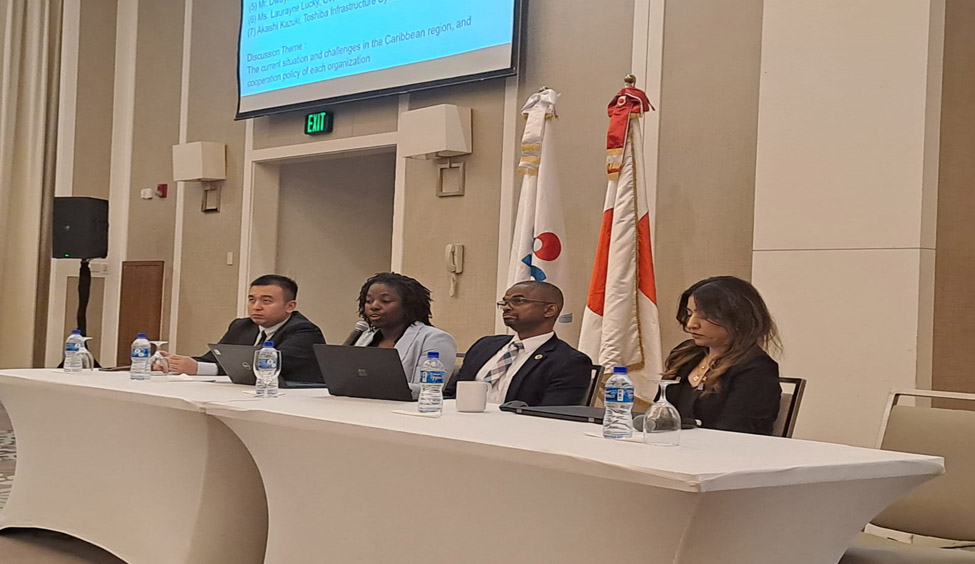Japan’s co-operation with CARICOM and Guyana in the water sector has been hailed and measures are being looked at to advance further improvements.
This year marks the 30th anniversary of Japan-CARICOM Consultations and the 60th anniversary of diplomatic relations between Japan, Jamaica and Trinidad and Tobago.
At a CARICOM-Japan Friendship Year 2024 event held on Monday at the Marriott Hotel in Georgetown, stakeholders gathered to discuss past, present and future challenges facing the sector, aiming to identify viable solutions.
The focus was on ensuring reliable access to clean water to enhance health, opportunities and resilience for communities. The event was a collaboration by the Guyana Government, the Guyana Water Inc and the Japan International Co-operation Agency (JICA)
Japan plays a role in supporting the Caribbean in water management through technical expertise. Initiatives include providing technical assistance, capacity building, and innovative solutions to promote sustainable resource use and climate resilience.
Delivering opening remarks, Minister of Housing and Water Collin Croal emphasized the longstanding friendship between Japan and CARICOM, particularly in the water sector. He highlighted Japan’s support in enabling significant projects in Guyana, including water treatment plants and infrastructure improvements. Future collaboration aims to address water scarcity challenges by sharing advancements in water-saving technologies.
Meanwhile, panelists engaged in discussions and presentations focusing on regional cooperation involving the Inter-American Development Bank (IDB), JICA, and Japanese companies. These discussions highlighted key areas such as enhancing the education sector, agricultural and fisheries development, and private sector growth. This partnership has led to the execution of projects across various sectors, benefiting thousands.
Outlined also were the ongoing planned projects, specifically on a water and sanitation project in Guyana, which is expected to be developed in collaboration with the IDB. Additionally, other projects will focus on disaster risk management across the Caribbean, not limited to individual countries but aiming for a comprehensive regional approach.
Briefly speaking to the media, Imoto Sachiko, JICA Senior Vice President shared the strategic direction for enhancing the effectiveness and efficiency of collaborative efforts throughout the Caribbean. She stated that there is a “commitment to strengthen these partnerships and ensure that the shared experiences continue to lead to meaningful development outcomes in both regions”, she said.
In her address at the event, CARICOM Secretary General Carla Barnett sounded a warning over the need to tackle water sector challenges lest they retard progress on food security and poverty reduction.
“Increasingly, natural disasters, primarily hurricanes, also lead to floods, biodiversity and ecosystem loss and damage to infrastructure. These impacts are compounded when debt burdens worsen with global external shocks as we experience from time to time.
“Water management challenges in the Caribbean are therefore significant. Firstly, across the Region we are faced with ageing physical infrastructure with many parts of our distribution systems that were built back to deep in the colonial era resulting today in high levels of what we euphemistically call `non-revenue’ water, whether through leakage or informal connections. This weakens our ability to meaningfully strengthen water governance and regulation of the water sector. This, at the same time that population growth, rapid urbanisation, and economic development challenges are leading to increased demand for water.
“Failure to address the challenges to the water sector would further jeopardise the Region’s hard-fought progress on food and nutrition security, poverty reduction targets, and sustainable development. Since effective water management relies on solid policy frameworks and water governance structures, a holistic and participatory approach to water resource management is best likely to maximize positive results”, she said.






